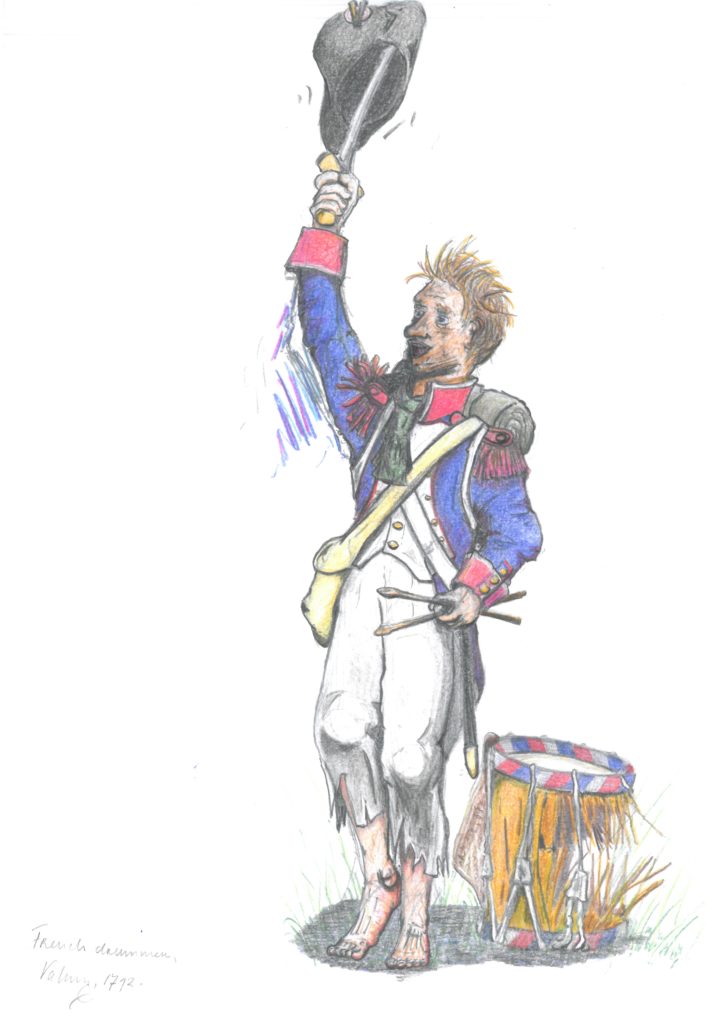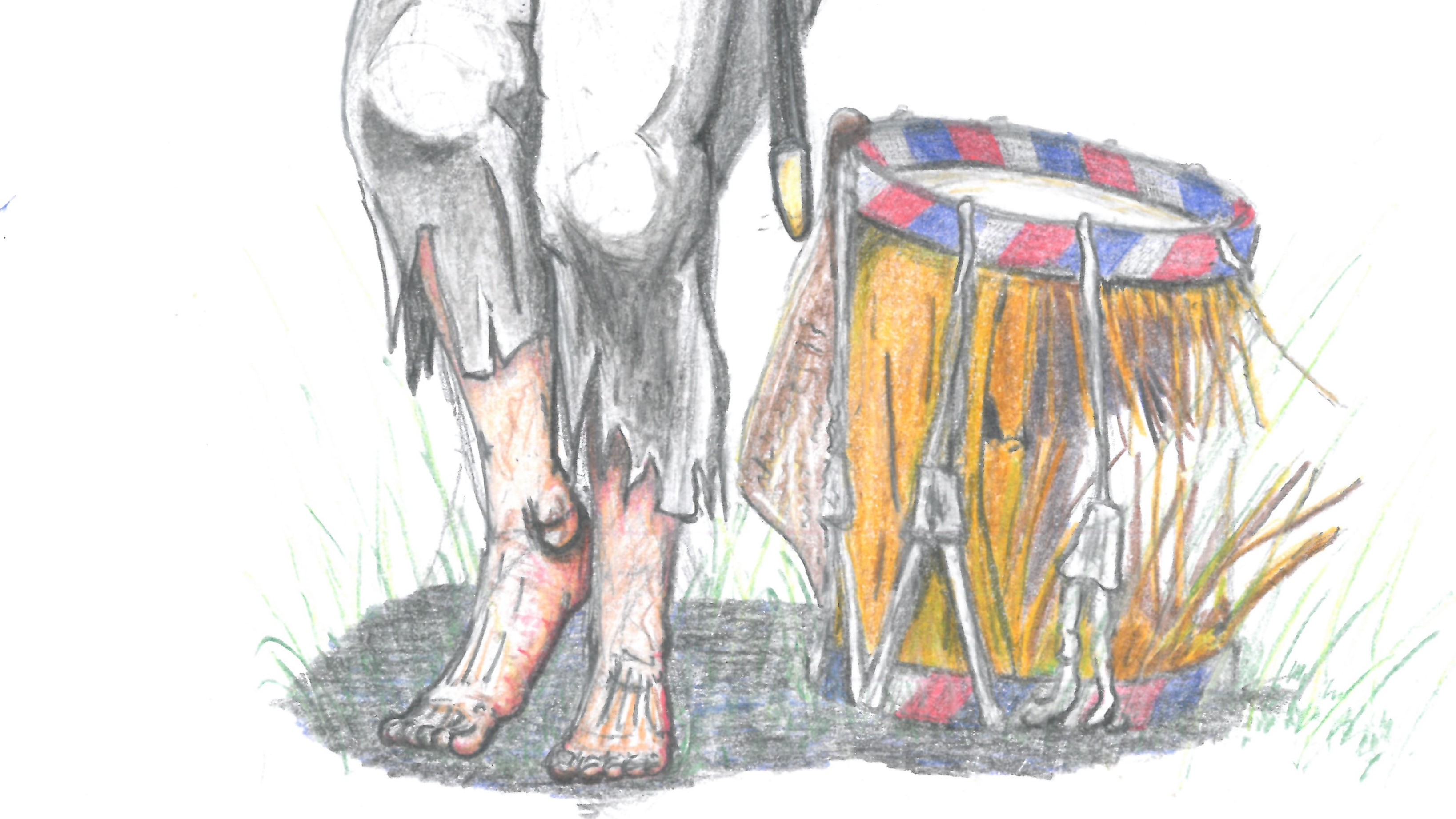With an image of a French drummer I sought to capture a description of the Battle of Valmy (1792) by historian David Bell, whose The First Total War is one of my favourite books. Although a military affair in practice, the engagement mostly had symbolic value and therefore political significance: “…what Brunswick [commanding the Prussians] could treat practically as non-event, the French rapidly elevated to the level of myth”. 1David A. Bell, The First Total War: Napoleon’s Europe and the Birth of Modern Warfare (London: Bloomsbury, 2008 (First published in 2007)), 130-138.
As the French Revolution raged, threatening old Europe with new ideas, the conservative Prussians attempted to stop it where possible. Like so many new and hastily assembled armies, the French army was badly armed and dressed. Under the old regime, logistics and supplies had largely been organised through private contractors. In the period of transition towards state control, a great many soldiers had no shoes, no muskets and scarcely any food.2
Alan I. Forrest, “The Logistics of Revolutionary War in France”, in War in an Age of Revolution, 1775-1815, Roger Chickering & Stig Förster eds., (Cambridge: Cambridge University Press, 2013 (First published in 2010)), 182.
On September 20, 1792 they met their foe, at Valmy, a hundred kilometers east of Paris. The night before the battle it would rain. And as both sides lined up against each other, they found the muddy field impossible to advance across. Bar one called-off Prussian attack, only the artillery of both sides could be drawn up in range to cause pain. For the common soldier on foot, there was not much to do but to keep motivated enough to endure the cannonade. Through singing revolutionary songs and continuous cheering, the ragged French managed to do so. Seeing no opportunity to beat the enemy, the Duke of Brunswick let his men fall back, hoping to out-maneuver the French another day.
And now to Bell’s point: somewhere in the back of their heads, the Prussians expected the French to interpret the event the same way as they did. There had hardly been a fight, so how could anyone possibly claim victory? True indeed, during the century before, such thinking was arguably conventional. But now, the propagandist news quickly spread in Paris that the invader had been stopped. The revolutionaries were vindicated, and the idea of success bred more success.
During the winter following Valmy, in that same state of political ecstasy, the revolution turned in a very radical direction. The extremist Jacobin faction would eventually take the helm, guillotining the king, many other nobles and moderates; taking away power from the Church; and implementing conscription, never seen before. Often, it seems not so much reality, but rather our interpretation and imagination that guide our actions. However, as with nearly all history, Bell’s reasoning has its opponents, writing both before and after him.3See for example John Lawrence Tone, “Partisan Warfare in Spain and Total War”, in War in an Age of Revolution, 1775-1815, Roger Chickering & Stig Förster eds., (Cambridge: Cambridge University Press, 2013 (First published in 2010)), 258-259. That will be stuff for a future post.

